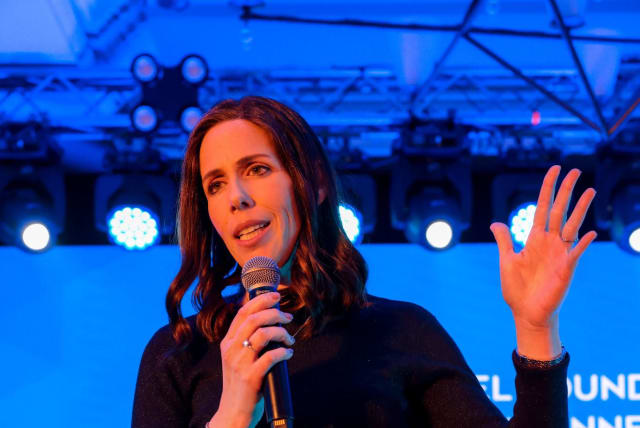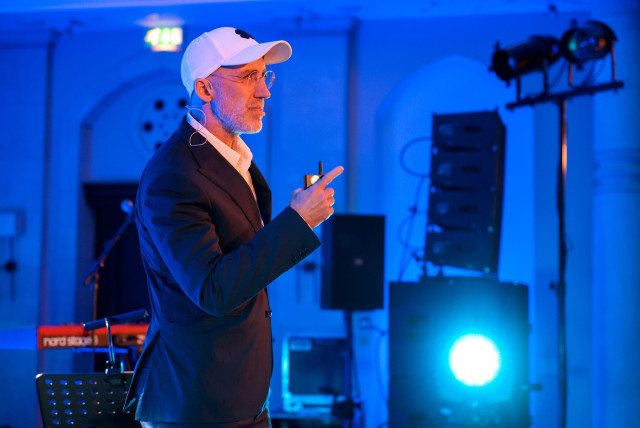Post-October 7, teachers gather to secure the future of Jewish education

Between Monday and Wednesday the Yael Foundation hosted a conference to gather Jewish educators and community leaders to discuss ideas for improving Jewish education.
Jewish educators and community leaders from 30 countries and over 60 institutions gathered in Paphos for the Yael Foundation 2024 conference last Monday until Wednesday to discuss the future of Jewish education and how to strengthen Jewish identity among students.
Gathering in the Cyprus resort town, the educators shared best pedagogical practices for a range of challenges facing educators and students in the modern age.
Participants attended lectures and workshops from other educators and experts, such as Dr. Hananel Rozenberg exploring challenges with the proliferation of smartphones, and Dr. Lan Lossos on the optimal use of different technologies for educational purposes.
The relationships between teachers and parents and the role of authority in education was explored by Legadel Institute chair Rabbi Pinchas Breier. Panelists like Tzemach David Foundation executive director Tamar Krieger and World Zionist Organization's Roi Abecassis also shared broader visions for the future of Jewish education -- in which Abecassis argued that out of the tragedy of October 7 there was an opportunity to create unity through teaching shared Jewish identity.
Yael CEO Chaya Yosovich told The Jerusalem Post that many more Jews in the diaspora were coming to synagogue and wanted to be part of the community in the wake of the Hamas massacre in Israel, and that educators had to respond to this desire for Jewish identity.
"This year more than ever, it is evident why Jewish education is essential for preserving Jewish identity in the Diaspora," said Yosovich. "The conference serves as a vital meeting point for educational institutions to engage in mutual learning and create a shared approach to confronting the challenges of our time."
Challenges faced by the educators
One of the common challenges that faced educators was that it was also parents' responsibility to recognize the need to give their children a Jewish education, Yosovich said. Diaspora Affairs Minister Amichai Chikli echoed the sentiment on Tuesday night in a video message for the conference gala. Chikli said that in response to the post-October 7 wave of antisemitism in the diaspora, it had become all the more important to strengthen Jewish identity.
This was a problem faced by Yosi Ludman, Director of the Ilan School in Buenos Aires. In his area of Argentina, the Jewish population is diffused and comes from assimilated families in which only their mothers or grandmothers are Jewish. Many don't even identify as Jews.
Ludman said that he wanted to teach them that they are Jews, and to be proud of this fact. Over the 13 year operation of the school and 20 year operation of the kindergarten, he said he had seen many successes, with students marrying other Jews and even making aliyah.
One man who had been a student that lived an hour and a half from the school, and didn't even have a circumcision when he began attending. Now, he wears a kippah, tzitzit, and married a religious Jewish woman. He said that new developments like the election of Argentinian President Javier Milei, who is close to Judaism, could inspire interest in the faith among the Jewish population.
Rio de Janeiro Bar Ilan School Principal Rafael Cozer Antaki said that he found it essential to teach both Judaism and Zionism for a complete identity that would inspire unity across the Jewish people. His success in establishing a religious Zionist identity is in the 100 students and their families that made aliyah to Israel over the last three years.
One reason that parents may be reluctant to enroll their kids in Jewish schools, according to Yosovich, is that they may feel like they have to choose Jewish identity or academic excellence. Yosovich wants them to help schools achieve both.
Ludman sought to attract students with a montessori-style education, to show them it's not just a place of Jewish education, but an institution that would give children valuable skills. Antaki said that two years ago his school became a bilingual school, teaching Portuguese and English, thereby more appealing for parents.
Sharing the experiences with these practices is what made the Yael Conference one of the most important he had attended, said Barcelona Colegio Hatikva principal Ari Messer. His school has seen success as an international school, with 340 kids from 22 different countries, 40% of them being from Spain. The 52-year-old school has students from different strains of Judaism, which he admits has been a balancing act, and teaches primarily Spanish and English, plus Hebrew and Catalan. The school's success has become a challenge -- when the community built the school, they didn't think it would get so big. Messer said that the Yael Foundation was helping them manage how to take the next steps in expansion and deal with the 50 kids on their waiting list.
"By growing the only Jewish school in Barcelona, we're talking about strengthening the Jewish community," said Messer.
The Yael Foundation is three years old, and Yosovich recently took on the role of director. With co-founder and philanthropist Uri Poliavich's Tuesday evening announcement that he would be doubling the foundation's budget from 10 million euros in 2023 to 20 million euros in 2024, Yosovich is also pursuing a new plan to improve Jewish schools worldwide.
Yosovich said that until now the organization wanted to reach as many places as possible -- expanding to 67 schools -- but were shifting to take a deeper and more qualitative approach with individual schools. The foundation would take three institutions with high potential and focus on them for a holistic mega project. They intended to explore what each school needed and to develop those capabilities.
One of the strengths of the Yael Foundation was that it is able to provide immediate budgetary relief if a problem or opportunity for programming arises, Yosovich explained.
School's like Ludman's have financial challenges, since they operate in poor areas. Some of his student body doesn't pay for enrollment, transportation, or food, which has left him working hard in the search for donors. One donor told him that he only donated to IDF soldiers.
"I'm very happy that you donate to soldiers, but if you wish that our children will ever want to make aliyah and become soldiers, they first need to identify as Jews through education," Ludman had told the philanthropist.
At the Gala on Tuesday night, five schools were given the Yael Foundation for Educational Excellence award. The Center for Jewish Youth in Lausanne was honored for excellence in non-formal Jewish education, Buenos Aires' Ohalei Chinuch for traditional Jewish studies, Mexico City's Yavneh School for academic achievements, Kyrgyzstan's Pri Etz HaChayim and Georgia's Or Avner shared an award for innovation and technology, and Paris's Beit Aharon was awarded for promoting Jewish values and community contribution.
Yakov Monsengo, founder of the Beit Aharon School, said that the Yael Foundation had led them for two years, and they felt how much it had become an important part of the institution. He said he was glad to hear ideas from people who had different experiences, and appreciated everyone who presented at the workshops and lectures.
"I am returning to France with a lot of ideas and strength to teach," said Monsengo. "The strength of the Jewish people is the tradition that they pass on."
Jerusalem Post Store
`; document.getElementById("linkPremium").innerHTML = cont; var divWithLink = document.getElementById("premium-link"); if (divWithLink !== null && divWithLink !== 'undefined') { divWithLink.style.border = "solid 1px #cb0f3e"; divWithLink.style.textAlign = "center"; divWithLink.style.marginBottom = "15px"; divWithLink.style.marginTop = "15px"; divWithLink.style.width = "100%"; divWithLink.style.backgroundColor = "#122952"; divWithLink.style.color = "#ffffff"; divWithLink.style.lineHeight = "1.5"; } } (function (v, i) { });

